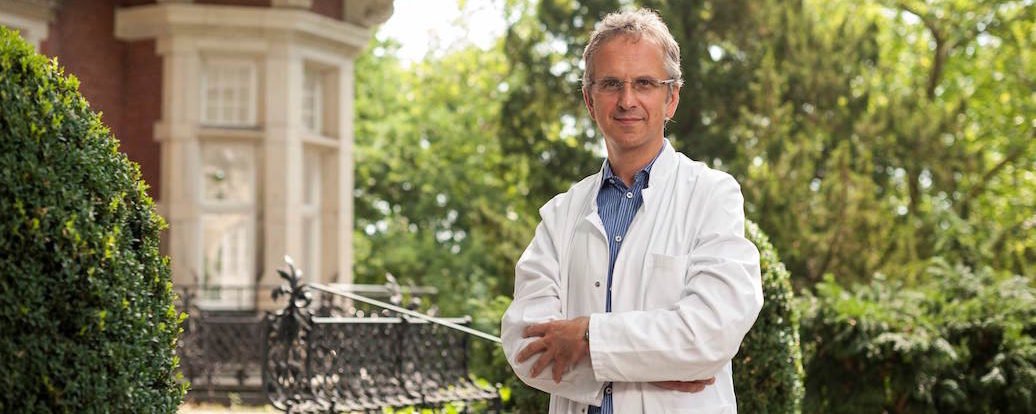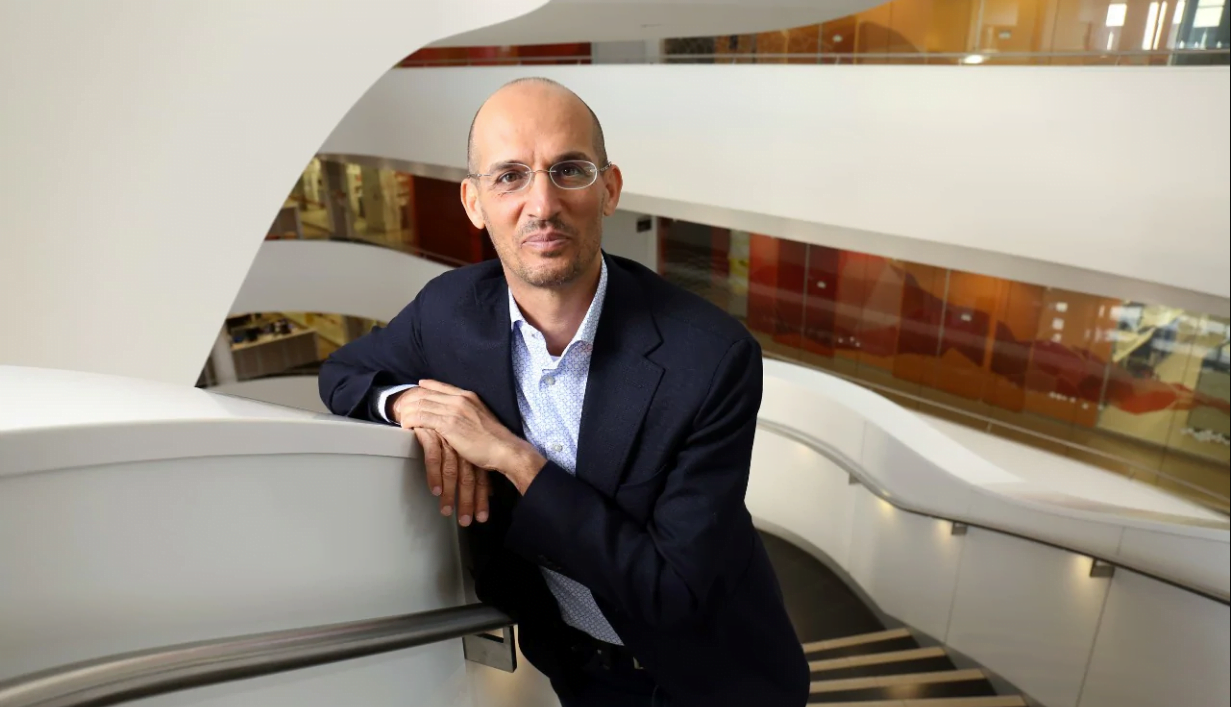THE BENEFITS OF FASTING AND THE QUESTIONS WE RECEIVE…
Pioneering wellness and fasting retreats in Vietnam is quite a challenge. Often, the first question potential retreat guests ask is related to weight loss. Rather surprising in a country not known for high obesity rates, unlike many western countries. At the same time it conveys a level of assertiveness, revealing expecations and priorities. And weight loss is for many the primary motivator to consider fasting as an effective way to enhance one’s looks and wellbeing.
The second question most people ask is: Won’t I feel hungry?
The retreats we offer in Vietnam apply the preventative version of the Buchinger therapeutic fasting method from Germany which is a combination of caloric restriction combined with alternating rest and movement. So, the answer regarding weight loss is always a very clear “Yes! You can’t avoid loosing weight during a fast.” says Dieter Buchner, Retreat Leader and Founder of Vietnam Detox. “The more excess weight you have, the more you can lose during a fast.” Callers are suprised however, when we tell them loosing weight is just a side effect but not the main purpose of fasting which then triggers many new questions.
And the answer to the second question is: “If you are fasting (correctly) you won’t feel hungry. If you feel hungry you are not fasting.” emphasies Buchner.
Many people are not aware of the tremendous health benefits of caloric restriction or fasting. Research teams specialising in medicine, molacular biology and neuroscience have collectected scientific evidence proving fasting, for hours, days or weeks can be healthy for people and alleviate disease.
Let’s see how the medical world views fasting…
DIET AND FASTING – AN ANCIENT CURE ALL METHOD
“We have known for a while that all organisms, from simple baker’s yeast to apes, benefit from health fasting,” says Andreas Michalsen, chief physician of the Department of Naturopathy at Immanuel Hospital Berlin. But in recent years, the topic in the scientific community is really “in”, they are very interested in the processes that take place during the fasting in the body, and find more and more evidence of positive health effects.

Michalsen, who looks after patients undergoing therapeutic fasting in his department and publishes studies – as part of an endowed professorship for clinical naturopathy at the Berlin Charité, welcomes this development. Nevertheless, for him the many findings are only a confirmation of naturopathic knowledge that has existed for millennia. “Fasting is like other traditional health teachings, such as yoga, first practiced by a small group, considered exotic, then many swearing by it because it works – and eventually, there is long expected scientific evidence.” Hippocrates had already prescribed fasting days to his patients in ancient times. Even doctors of the 19th century swore by drinking and fasting. And at the beginning of the 20th century, the physician Otto Buchinger opened one of the first fasting clinics in his native Germany and tried to cure suffering such as rheumatism among rich citizens.
SO WHAT CAN FASTING REALLY DO?
Today, therapeutic and preventative fasting is no longer a luxury. According to estimates by the medical association “Heilfasten und Ernährung”, about 10,000 people in Germany use the services offered by various specialist clinics and hospitals each year. For one, two or three weeks, they mainly consume tea, juice and broth, refraining from all stimulants such as nicotine, coffee and alcohol. And the number of people who refuse to eat solid food for a week at home on their own account at home ranges from 3 to 5 million depending on the survey. Popular is a variation of the Buchinger fasting for healthy people over five or seven days, which is the programme we now offer in Vietnam. If you apply this method alone at home compared to doing it as a retreat, you must be able to cope with watching others in the canteen while enjoying sausages, while sipping on unsweetened tea. Not an easy exercise. But many feel it is doing them a lot of good.
There were and still are sceptics of fasting. Many clinicians warn against “starvation” because it weakens and breaks down muscle mass. Others considered fasting as a medieval hocus-pocus. For a long time, nutrition experts from basic sciences in particular warned that there was no evidence for the positive effects of fasting. “The skeptical voices are rarely heard today,” says Michalsen.

No wonder: medics from various fields have now shown how remarkable fasting can alleviate diseases. Therapeutic fasting has been shown to be beneficial for rheumatoid arthritis symptoms in several studies. A few years ago, Washington University physician Luigi Fontana confirmed in a long-term study that fasting also benefits blood pressure and other risk factors for arteriosclerosis. Prof. Roy Taylor of Newcastle University in the United Kingdom has been prescribing diabetes patients a fasting period of eight weeks, noting that the discomfort and blood levels of Type II diabetes patients are greatly improving – and the effects of the fasting cure continue for months. Neuroscientist Mark Mattson of the John Hopkins University School of Medicine has shown that fasting also has a positive effect on the brain: so-called amyloid plaques, protein fragments that are located between nerve cells and occur more frequently in Alzheimer’s disease, were significantly reduced.
Biogerontologist Valter Longo from the University of Southern California has even found evidence in a study that fasting can be useful in cancer therapy: he let a group of cancerous mice fast for 72 hours during chemotherapy. These mice were not only fitter and more vigorous during the exhausting treatment than a control group, they lived significantly longer after treatment than mice that had not fasted. For Andreas Michalsen, the study breaks a taboo: “For decades, the only recommendation for cancer patients was to eat their favorite food.” You should not burden the sick with dietary changes was the going approach. Today it seems that fasting has a positive effect even during Cancer therapy.” But more evidence is pending. Michalsen is currently working on a study on this subject at the Charité.
Although the Berlin physician cautiously warns that while fasting is no miracle cure, he strongly asserts “fasting can push a kind of reset button in the body “. Especially in lifestyle diseases such as high blood pressure and diabetes, fasting diets can actually partially reverse the overexploitation of the body. “In a time of abundance, fasting is also an excellent prevention,” says Michalsen. Anyone who is healthy can deliberately minimize risk factors such as high levels of inflammation, heightened blood lipid or glucose levels. Even if fasting is by no means the main focus and is considered by experts to be a “fallout effect”: many diseases and their development are favored by the fact that we daily supply the body with too many calories, constantly dealing with digestive processes – and thus resulting in obesity. Statistics show that two-thirds of men and half of women are overweight.
“Even if fasting drastically reduces weight for a short time, it is nevertheless important that you do not see it as a slimming cure,” says Andrea Ciro Chiappa, a nutritionist and president of the German Fasting Academy (dfa). He points out that one does not permanently reduce his weight by fasting alone.
However, it has been proven that the break with food intake and the fasting experience often lead to a rethinking: A study by the German Universities of Duisburg and Essen with more than 900 participants shows that after just one week of fasting, sustainable lifestyle and lifestyle changes, Dietary habits can arise. The German Nutrition Society – which is very skeptical about diets and has long been critical of fasting – today believes that fasting can be a good way to pave the way for more conscious eating habits.
Fasting is considered superior to pure calorie counting because it positively alters the metabolism. In a week without solid food, the body gradually switches to “fasting metabolism”, feeding almost completely out of its reserves after a transitional period of about three days. In the first ten to twelve hours, the body is still in the usual carbohydrate metabolism, the glycogen stores in the liver are depleted – converted into usable glucose.
After that, protein is consumed for a short time, mostly superfluous structural protein, for example from the connective tissue. Then a protein-saving mode sets in, the fat-metabolising processes intensify, eventually providing most of the needed energy. Among other things, the so-called ketone bodies are formed in the lipid metabolism. They not only provide the cells with energy, they also have health-promoting effects. On the one hand, they can cross the blood-brain barrier where take on protective actions for nerve cells. In addition, they are involved in the “fasting high”, which occurs from the third or fourth day of fasting when they trigger feelings of euphoria.
A recent study by Yale University has also shown that a certain type of ketone body can also inhibit inflammation. This study could be a new way of explaining why fasting often works in inflammatory conditions such as rheumatism. Inflammatory processes also play a role in arteriosclerosis and hypertension according to current research. This also applies to the cardiovascular system too, where circulating ketones in the blood could be beneficial.
The second important process of change during fasting is autophagy.This refers to the cleaning andcleanup process which begins in the cell as soon as the body is in fasting mode. “Whenever you stop providing food to your cells, they run into an energy problem,” explains biochemist Frank Madeo, who heads a research group at the University of Graz that studies the effect of short-term fasting at the molecular level. “They then begin to break down cellular components that are superfluous or even harmful, such as damaged mitochondria that can lead to cancer, as well as clumped proteins that promote neurodegeneration.”
In the meantime, it has also been observed they way autophagy takes place in the cell : surrounding cell components are packed into a kind of garbage bag, the autophagosome, and dissected into pieces after fusion with a “cell stomach”. They are then made available to the cell for generating energy or for building structures. “Not only does the cell solve its energy problem with such processes, but it also disposes of harmful molecules that can lead to discomfort and disease in old age,” concludes Madeo. A kind of cell detox.
How significant these processes of self-digestion are shows the fact the Nobel Prize for Medicine in autumn 2016 went to Dr. Yoshinori Ohsumi, whose life’s work is the exploration of autophagy. Ohsumi has repeatedly shown in studies that nutrient scarcity favors the healing mechanism. For Frank Madeo, autphagy is a bioogical cell process, which explains why people who are fasting “detoxify” themselves and feel “tidied up” after some time. Whether this research also convinces skeptics, who roll their eyes as soon as the term “purification” falls, remains to be seen. It is clear to Madeo: “Whoever manages to initiate ketogenesis and autophagy in the body, does a lot of good for his health.”
So is all this good news? Not if you find it impossible to survive for several days without steak or salad. However, there are encouraging new approaches in research as well: The team led by Frank Madeo and several other working groups around the world have been investigating in recent years whether shorter fasting times incorporated into the daily routine can trigger healthy fasting metabolism.
INTERMITTENT FASTING
There are many indications that interval or intermittant fasting works. Various rhythms of feasting andfasting are examined: Frank Madeo, together with Thomas Pieber, supervises a group of trial participants in the “Interfast” study who alternate between one day of fasting and one day of eating. First prognosis: ketogenesis and autophagy are effectively stimulated by this rhythm. But also a more suitable use of the Intervallfastens for everyday, the “time-restricted feeding”, meaning refraining from eating for several hours of the day, seems to make a difference. “Anyone who keeps a fasting interval of 14 to 16 hours daily can already trigger fasting-metabolism processes,” explains Madeo. Many people who try this variation put the hours of food abstinence into the night – and then cut an extra length by omitting breakfast in the morning. “You only get hungry during the changeover period of one or two weeks,” assures Madeo, who eats in a similar way. Also performance losses, if any, last only for a short time.
“For healthy people, the hourly fasting is a good alternative to threapeutic fasting,” says Andreas Michalsen. One absolute plus point: you activate all positive biochemical effects of fasting once a day – and can still eat fairly normal. This moderate type of intermittant fasting even becomes a permanent diet change for many.

Scientist Satchidananda Panda from the Salk Research Institute in California was one of the first to point out that when you eat – and now how much you eat – could be more important. In one experiment, he examined about 400 mice. One half of the animals got a very high-sugar and high-fat diet for 9 to 15 hours a day – you could call them fast-food diet – but no food in the other hours. For the other half of the mice, the same amount of fast food was available for 24 hours. As expected, the mice that were able to eat constantly became fat and sick quickly, getting diabetes. The mice, who only ate 9 to 15 hours but fed the same amount as the others, remained lean and healthy.
This result is remarkable. And it suggests we should reconsider all of our eating habits. In another study, Panda found out that, at least in the US, most people eat permanently. He provided volunteers with an app to photograph every meal – from morning cornflakes to the last peanut flips before bedtime. So he was able to observe that most subjects eat over 14 hours distributed. This constant calorie intake is thoughtless and unconscious – but it may make you ill.
But even people who eat consciously and healthily fall into this trap. Many of them eat according to the motto: “Better five to seven small meals a day than three big ones.” This nutritional recommendation can be considered obsolete. Constant eating throughout the day leads to a persistently high level of insulin, the body does not rest.
Of course, reversing this conclusion “Eat only a few hours a day, then you can eat whatever you want in that time” is no good nutrional advice. “If you want to integrate fasting into your normal day, ensure you consumes high-quality food with lots of nutrients and fiber,” recommends dfa president Chiappa. But he also sees Intervall fasting as a good opportunity to incorporate fasting into everyday life.
However, one of the drawbacks of intermittent fasting: you will not go through a holistic experience, an encounter with oneself. Andreas Michalsen, who encouters around 1000 people each year in his fasting cure, is always amazed at how much the charisma and mood of the patients change during fasting. Many come with chronic pain, are severely overweight or have been ill for a long time. “People come here and do not believe in fasting, they follow along just because that they way we do it here in the clinic,” he says. “But after a few days, you see them blossom, many are proud of themselves, feel downright happy.” To experience first hand to manage just fine without solid food for a few days strengthens their self-confidence. And also the much talked about “fasting-high” is involved in the mood brightening. It has, according to studies by Michalsen, at least the power to relieve mild depression.
The question remains, why fasting is not standard recommendation for anyone who wants to become healthier or stay healthy. Andreas Michalsen sees many reasons: “One thing is sure, fasting does not cost much, so you can not earn a lot of money with it.” The fact that you can actually achieve more for your body and soul with less energy, food and effort is no cause for rejoicing for companies in the pharmaceutical and food industry. Or, to quote a sentence from the Greek Hippocrates: “If you want to be strong, healthy and young … heal your pain through fasting rather than medication.” It’s worth a try.
IF YOU HAVE FASTING EXPERIENCE, WE WELCOME IF YOU CAN SHARE YOUR EXPERIENCE WITH US TO ENCOURAGE OTHERS TO BENEFIT FROM THE HEALTHY BENITS OF FASTING.
This blog has been created with translations from an article published on 14. February 2018 by Anne Otto in the German Weekly Online Magazine, Der Spiegel.




